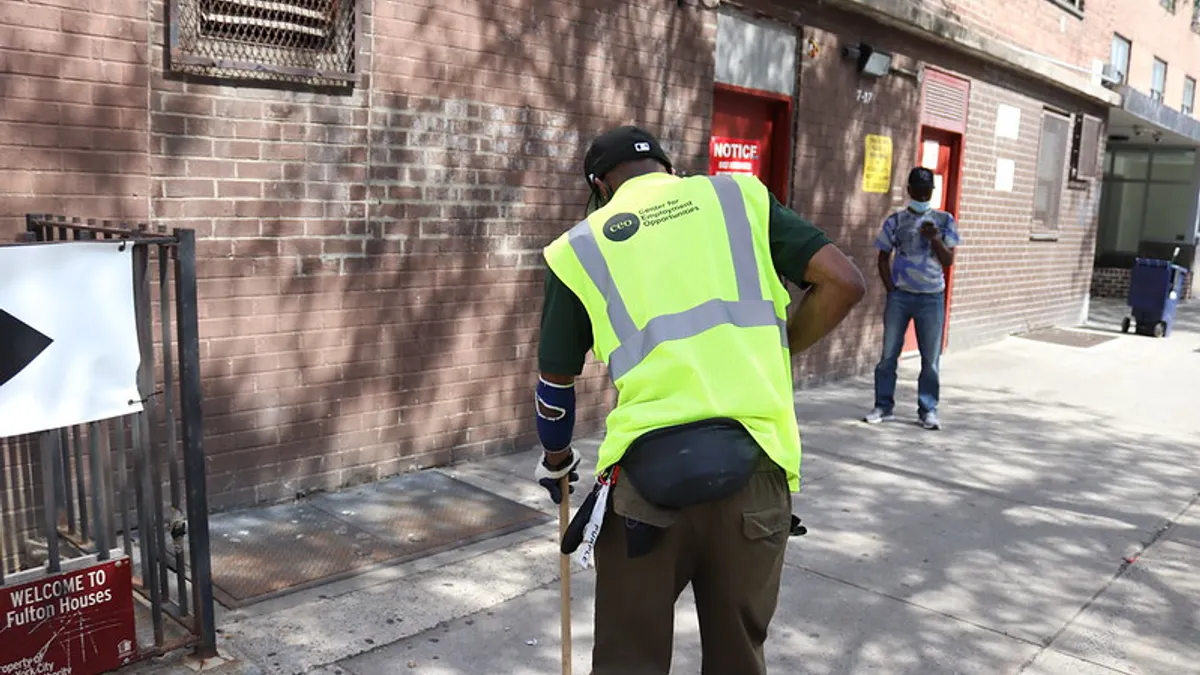Dive Brief:
- Participants in a Colorado workforce reentry program for formerly incarcerated people experienced median quarterly income growth of 123% within six months of enrollment, demonstrating the potential economic benefits of such models, according to an analysis published by the University of Denver’s Colorado Evaluation & Action Lab.
- The program, operated by the nonprofit Center for Employment Opportunities, provides participants with immediate transitional jobs with daily pay, as well as supportive services both before and after full-time employment is procured. Participants most often worked in administrative and support services, accommodation and food services, construction or social assistance roles.
- Evidence of an upward earnings trajectory for program participants is “encouraging,” Roger Low, founder and CEO of the Colorado Equitable Economic Mobility Initiative, a partner organization, said in a CEO press release. The release noted that work is a challenging barrier to reentry for the formerly incarcerated, citing data from the U.S. Bureau of Justice Statistics that showed about 60% of people were unemployed after one year post-incarceration.
Dive Insight:
Talent experts have long posited that formerly incarcerated people are an overlooked resource for organizations struggling to fill jobs. In recent years, employers who’ve taken steps to hire these workers have become more vocal in supporting reentry employment initiatives, with some calling on HR to overcome biases and prejudices against people with criminal records.
Sam Schaeffer, CEO of Center for Employment Opportunities, said in the firm’s release that the study findings “reinforce what we see every day: when given access to meaningful support, justice-impacted individuals thrive.”
At the legal level, some jurisdictions have sought to boost reentry employment opportunities by banning employers from asking about workers’ criminal histories via so-called “ban-the-box laws.” Employers can take their own steps towards hiring from this population, such as partnering with local community organizations, particularly those involved in criminal justice reform, and by creating inclusive policies like allowing employees time off to visit parole officers.
HR professionals might need to take the lead in advocating for such programs within their organizations, just as one Maryland-area HR professional did in helping bring a second-chance hiring initiative to local grocer Giant Food. This work also can include empathy training for managers and recruiters who may not be familiar with the particular obstacles formerly incarcerated workers face, a speaker told attendees at SHRM’s 2023 conference.














